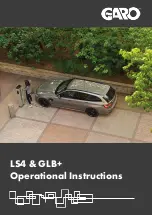
Trailer lights and equipment must
comply with federal, state/province,
and local regulations. Check with
your local trailer sales or rental
agencies for the requirements in the
area where you plan to tow, and use
only equipment designed for your
vehicle.
Towing can require a variety of
equipment, depending on the size of
your trailer, how it will be used, how
much load you are towing, and
where you tow.
Discuss your needs with your trailer
sales or rental agency, and follow the
guidelines in this section. Also make
sure that all equipment is properly
installed and maintained, and that it
meets federal, state, province, and
local regulations.
See your trailer dealer or rental
agency for more information on
installing electric brakes.
If you choose electric brakes, be
sure they are electronically actuated.
Do not attempt to tap into your
vehicle’s hydraulic system. No
matter how successful it may seem,
any attempt to attach trailer brakes
to your vehicles hydraulic system
will lower braking effectiveness and
create a potential hazard.
Always use safety chains when you
tow a trailer. Make sure the chains
are secured to the trailer and hitch,
and that they cross under the tongue
and can catch the trailer if it
becomes unhitched. Leave enough
slack to allow the trailer to turn
corners easily, but do not let the
chains drag on the ground.
Any hitch used on your vehicle must
be properly bolted to the underbody.
There are two common types of
trailer brakes: surge and electric.
Surge brakes are common for boat
trailers, since the brakes will get wet.
CONTINUED
Towing a Trailer
Trailer Lights
Trailer Brakes
Saf ety Chains
Hitches
Towing Equipment and
Accessories
D
riv
ing
263
08/07/22 18:18:52 31SWA620 0268
















































